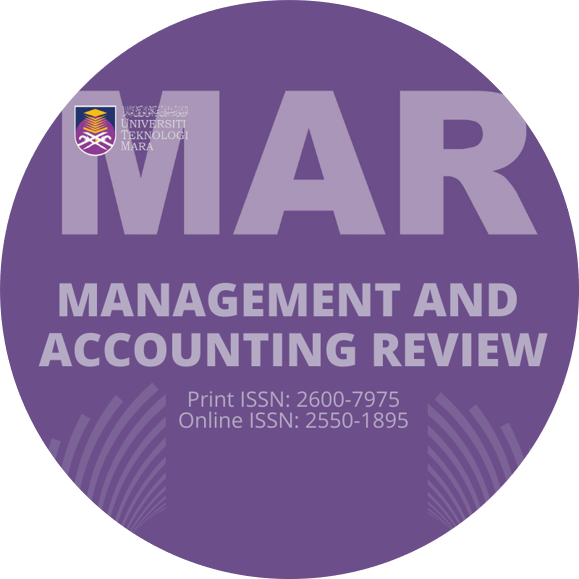Volume 23 No. 2, August 2024
MANAGEMENT AND ACCOUNTING REVIEW, VOLUME 23 NO. 2, AUGUST 2024
https://doi.org/10.24191/MAR.V23i02-06
Examining the Impact of Corruption and Other Macro- Economic Variables on Capital Accumulation in Pakistan
Naila Erum1♣, Abida Yousaf2, Jamaliah Said1, Kazi Musa1 and Saleem Khan5
1Accounting Research Institute (HICoE), Universiti Teknologi MARA (UiTM), Shah Alam, Malaysia
2Depeartment of Economocis, International Islamic University, Islamabad, Pakistan
3Department of Economics, Faculty of Business and Economics, Abdul Wali Khan University Mardan, Khyber Pakhtunkhwa, Pakistan
ABSTRACT
This study explored the complex relationship between corruption and capital accumulation in the presence of law and order, government stability, inflation, market size gross savings, and income inequality. This study fills the empirical gap in the existing literature, which mainly focused on the impact of corruption on growth in the context of Pakistan, by focusing on the corruption and capital accumulation nexus over the time period 1984 to 2022, employing the Auto-regressive Distributed Lag (ARDL) bounds testing technique. The findings of the study indicate that corruption and inflation are negatively and significantly affecting capital accumulation during the long run. Whereas, the effect of gross savings, market size, law and order, and government stability has a positive and significant influence on capital accumulation. The short-term results of the study are consistent with longrun results except the infrastructure quality variable which appears significant in the short run only. The findings of the study suggest that the government should take appropriate measures to curb corruption and control the level of inflation. Furthermore, it is needed to invest more in infrastructure, improve law and order along with making policies to attain government stability.
Keywords: Capital Accumulation, Corruption, Income Inequality, ARDL.
Teknology MARA (UiTM), Shah Alam, Selangor, Malaysia; Email: This email address is being protected from spambots. You need JavaScript enabled to view it.; Tel: +601128443325
ARTICLE INFO
Article History:
Received: 13 November 2023
Accepted: 15 February 2024
Available online: 01 August 2024





